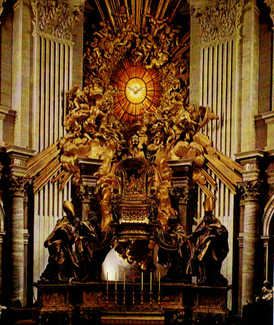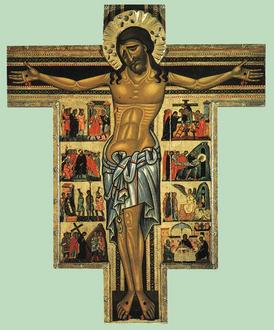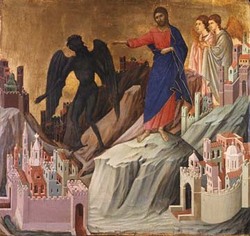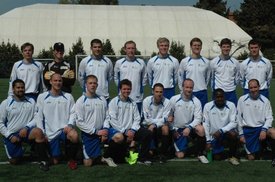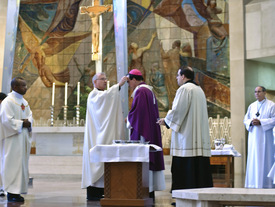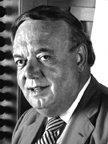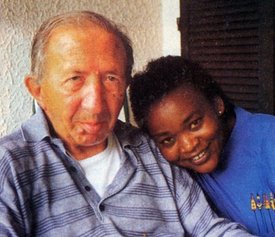 Five years ago today Monsignor Luigi Giussani died after suffering the effects of Parkinson’s Disease. I continue to miss his voice and witness to faith we profess in Christ.
Five years ago today Monsignor Luigi Giussani died after suffering the effects of Parkinson’s Disease. I continue to miss his voice and witness to faith we profess in Christ.
Chair of Saint Peter
Whatever you
will bind on earth will be bound in heaven, and whatever you loose on earth
will be loosed in heaven, the Lord said to Simon Peter.
O God, Who having given
Peter, Thy Apostle, the keys of the kingdom of heaven, did bestow on him the
pontifical power of binding and loosing; grant that by the help of intercession
we may be delivered from the bonds of our sins.
On this feast in 2009, Pope Benedict taught the following in an audience:
“This Sunday is also the
feast of the Chair of Peter, an important liturgical feast that highlights the
office of the successor of the Prince of the Apostles. The chair of Peter
symbolizes the authority of the Bishop of Rome, who is called to perform a
special service for the whole People of God. Immediately after the martyrdom of
Saint Peter and Saint Paul, the primacy of the Church of Rome in the Catholic
community was recognized. This role was already attested to in the 2nd century
by Saint Ignatius of Antioch (Letter to the Romans, Pref.: Funk, I, 252) and by
Saint Irenaeus of Lyons (Contra Haereses, III, 3, 2-3). This singular and
specific ministry of the Bishop of Rome was stressed again by the Second
Vatican Council. “Moreover, within the Church,” we read in the
Dogmatic Constitution on the Church, “particular Churches hold a rightful
place; these Churches retain their own traditions, without in any way opposing
the primacy of the Chair of Peter, which presides over the whole assembly of
charity (cf. Saint Ignatius of Antioch, Letter to the Romans, Pref.) and protects
legitimate differences, while at the same time assuring that such differences do
not hinder unity but rather contribute toward it” (Lumen Gentium, 13).
Pope Benedict XVI,
Feast of the Chair of Saint Peter, 22 February 2009
The
Church celebrates today, since the 4th century, the Feast of the Chair of Saint Peter, Apostle. The
Church does not worship church furnishings but the office that was given to the
Apostle Peter by the Lord Himself. This chair, then, is the key to unity among
Christians. Hence, it is not just a chair, but a throne or cathedra, i.e., a
seat of pastoral authority. It is not an authority for temporal affairs or political engagement. It is about preaching, teaching and sanctifying God’s people. These three functions are to lead others to heaven —communio with the Blessed Trinity.
For what purpose does the Church have a feast called the “Chair
of Saint Peter” and how is it connected with unity among Christians? Saint
Cyprian, Carthage’s bishop (d. 258), tells us,
“The Lord says to Peter: ‘I
say to you,’ He says, ‘that you are Peter, and upon this rock I will build my
Church, and the gates of hell will not overcome it. And to you I will give the
keys of the kingdom of heaven: and whatever things you bind on earth shall be
bound also in heaven, and whatever you loose on earth, they shall be loosed
also in heaven.’ And again He says to him after His resurrection: ‘Feed my
sheep.’ On him He builds the Church, and to him He gives the command to feed
the sheep; and although He assigns a like power to all the Apostles, yet He
founded a single chair, and He established by His own authority a source and an
intrinsic reason for that unity. Indeed, the others were that also which Peter
was; but a primacy is given to Peter whereby it is made clear that there is but
one Church and one chair. So too, all are shepherds, and the flock is shown to
be one, fed by all the Apostles in single-minded accord. If someone does not
hold fast to this unity of Peter, can he imagine that he still holds the faith?
If he desert the chair of Peter upon whom the Church was built, can he still be
confident that he is in the Church?“
“There is one God and one
Christ, and one Church, and one Chair founded on Peter by the word of the Lord.
It is not possible to set up another altar or for there to be another
priesthood besides that one altar and that one priesthood. Whoever has gathered
elsewhere is scattering.”
Saint Cyprian is very clear that Christ founded
upon Saint Peter the visible basis of the unity of the Church. Peter does not replace Christ as the
head of the Church. In theological terms this feast notes, observes and
otherwise holds up a primacy given by the Lord to Saint Peter to ensure and preserve
her unity. Saint Cyprian argues:
“With a false bishop appointed for
themselves by heretics, they dare even to set sail and carry letters from
schismatics and blasphemers to the chair of Peter and to the principal Church,
in which sacerdotal unity has its source; nor did they take thought that these
are Romans, whose faith was praised by the preaching Apostle, and among whom it
is not possible for perfidy to have entrance.”
For Saint Cyprian, the unity of the bishops and priests has its source (not only as a
past event but as a living, thriving principle) in the Chair of Saint Peter.
Last year’s blog post may also have some relevant info…
Lent: the verification if Christ really came to save us
Archbishop Dolan prays for Giussani, thanks Communion & Liberation, gives us the logic of Lent
Tomorrow is the 5th anniversary of death of the great priest and founder of Communion & Liberation, Monsignor Luigi Giussani. More on that later. However, the NY community of Communion & Liberation gathered at Saint Patrick’s Cathedral for the Sacrifice of the Mass celebrated by the Archbishop, Timothy M. Dolan. Among those in the sanctuary were Bishop William McCormack (retired auxiliary bishop of NY celebrating 51 years a priest today) and Bishop Gerald Walsh (NY auxiliary bishop and rector of Saint Joseph’s Seminary), Msgr. Lorenzo Albacete, Carmelite Father Eugene and Father Daniel O’Reilly with the seminarians from Dunwoodie and the collegians from St John Neumann Seminary Residence.
Clarifications on Summorum Pontificum
The Pontifical Commission Ecclesia Dei which oversees various matters pertaining to the praying of the Missal of Blessed John XXIII, sometimes called the Missal of 1962, or simply, THE Mass, issued a few clarifications on what the Pope intends to happen as a result of the publication of the motu proprio Summorum Pontificum which liberated from ideologues the praying of the Missal of Blessed John.
Clericus Cup 2010: learning to work with athletes, seminarians take to the field
Today begins the 2010 Clericus Cup (soccer tournament) for Catholic seminarians and young priests studying in Rome teaching values of good sportsmanship. 16 international seminaries or religious houses participate in the Cup. The Pontifical North American College Martyrs represent the USA.
Blesseds Francisco & Jacintha
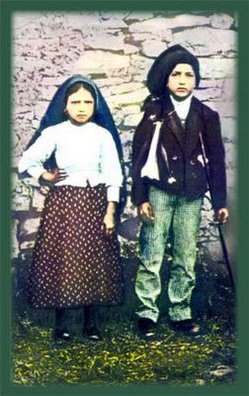 Unless you change and become like little children you will never enter the Kingdom of Heaven.
Unless you change and become like little children you will never enter the Kingdom of Heaven.
Lent lengthens our horizon, it orients us to eternal life, Pope tells us
I present to you most of the Pope’s homily for Ash Wednesday. Emphasis added to draw attention to some excellent ideas or turns of phrase.
Wisdom (cf 11:23-26), the liturgy introduces the Eucharistic celebration of Ash
Wednesday. They are words that, in some way, open the whole Lenten journey,
placing as their foundation the omnipotence of the love of God, his absolute
lordship over every creature, which is translated in infinite indulgence,
animated by a constant and universal will to live. In fact, to forgive someone
is equivalent to saying: I do not want you to die, but that you live; I always
and only want your good.
days transpired in the desert of Judea, after the baptism received from John in
the Jordan. This long time of silence and fasting was for him a complete
abandonment to the Father and to his plan of love; it was a
“baptism,” that is, an “immersion” in his will, and in this
sense, an anticipation of the Passion and the Cross. To go into the desert and
to stay there a long time, alone, meant to be willingly exposed to the assaults
of the enemy, the tempter who made Adam fall and through whose envy death
entered the world (cf Wisdom 2:24); it meant engaging in open battle with him,
defying him with no other weapons than limitless confidence in the omnipotent
love of the Father. Your love suffices me, my food is to do your will (cf John
4:34): This conviction dwelt in the mind and heart of Jesus during that
“Lent” of his. It was not an act of pride, a titanic enterprise, but
a decision of humility, consistent with the Incarnation and the Baptism in the
Jordan, in the same line of obedience to the merciful love of the Father, who
“so loved the world that he gave his only Son” (John 3:16).
did all this for us. He did it to save us and, at the same time, to show us the
way to follow him. Salvation, in fact, is a gift, it is God’s grace, but to
have effect in my existence it requires my consent, an acceptance demonstrated
in deeds, that is, in the will to live like Jesus, to walk after him. To follow
Jesus in the Lenten desert is, hence, the condition necessary to participate in
his Easter, in his “exodus.” Adam was expelled from the earthly
Paradise, symbol of communion with God; now, to return to that communion and,
therefore, to true life, it is necessary to traverse the desert, the test of
faith. Not alone, but with Jesus! He — as always — has preceded us and has
already conquered in the battle against the spirit of evil. This is the meaning
of Lent, liturgical time that every year invites us to renew the choice to follow
Christ on the path of humility to participate in his victory over sin and
death.
ashes, which are imposed on the head of those who begin with good will the
Lenten journey. It is essentially a gesture of humility, which means: I
recognize myself for what I am, a frail creature, made of earth and destined to
the earth, but also made in the image of God and destined to him. Dust, yes,
but loved, molded by love, animated by his vital breath, capable of recognizing
his voice and of responding to him; free and, because of this, also capable of
disobeying him, yielding to the temptation of pride and self-sufficiency. This
is sin, the mortal sickness that soon entered to contaminate the blessed earth
that is the human being. Created in the image of the Holy and Righteous One,
man lost his own innocence and he can now return to be righteous only thanks to
the righteousness of God, the righteousness of love that — as St. Paul writes
— was manifested “through faith in Jesus Christ” (Romans
3:22). From these words of the Apostle I took my inspiration for my Message,
addressed to all the faithful on the occasion of this Lent: a reflection on the
theme of righteousness in the light of the Sacred Scriptures and of its
fulfillment in Christ.
Wednesday is the theme of righteousness. First of all, the page of the prophet
Joel and the Responsorial Psalm — the Miserere — form a penitential diptych,
which manifests how at the origin of all material and social injustice is what
the Bible calls “iniquity,” that is, sin, which consists essentially
in a disobedience to God, namely, a lack of love. “For I know my
transgressions, / and my sin is ever before me. / Against thee, thee only, have
I sinned, / and done that which is evil in thy sight” (Psalm 51 (50):
3-4). The first act of righteousness, therefore, is to recognize one’s own
iniquity, it is to recognize that it is rooted in the “heart,” in the
very center of the human person. “Fasting,” “weeping”,
“mourning” (cf. Joel 2:12) and every penitential expression has value
in the eyes of God only if it is the sign of truly repentant hearts. Also the
Gospel, taken from the “Sermon on the Mount,” insists on the need to
practice proper “righteousness” — almsgiving, prayer and fasting —
not before men but only in the eyes of God, who “sees in secret” (cf
Matthew 6:1-6.16-18). The true “recompense” is not others’
admiration, but friendship with God and the grace that derives from it, a grace
that gives strength to do good, to love also the one who does not deserve it,
to forgive those who have offended us.
and sisters, Lent lengthens our horizon, it orients us to eternal life. On this
earth we are on pilgrimage, “[f]or here we have no lasting city, but we
seek the city which is to come,” says the Letter to the Hebrews (Hebrews
13:14). Lent makes us understand the relativity of the goods of this earth and
thus makes us capable of the necessary self-denials, free to do good. Let us
open the earth to the light of heaven, to the presence of God in our midst.
Amen.
Richard Proulx, RIP
Practice prayer … it’ll be the best thing you’ve ever done (as least lately)
Practice prayer from the beginning. Paint your house
with the colors of modesty and humility. Make it radiant with the light of
justice. Decorate it with the finest gold leaf of good deeds. Adorn it with the
walls and stones of faith and generosity. Crown it with the pinnacle of prayer.
In this way, you will make it a perfect dwelling place for the Lord. You will
be able to receive him as in a splendid palace, and through His grace you will
already possess Him, His image enthroned in the temple of your spirit.
Chrysostom, homily read at Office of Readings, Friday after Ash Wednesday
